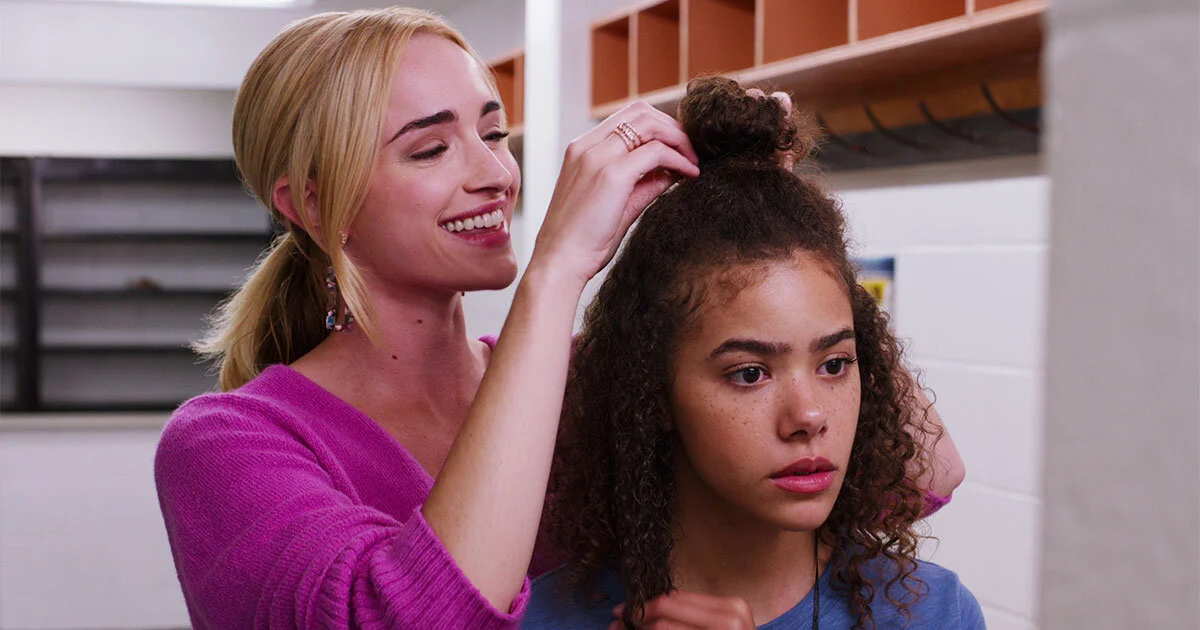TV Review: Ginny & Georgia
The cringe-worthy binge of the week remains in Netflix’s top U.S. charts as a matured version of ‘Gilmore Girls’ makes its debutReagan Horne, Staff Writer
Photo courtesy of Netflix
Netflix’s original television show, “Ginny & Georgia”, premiered Feb. 24, 2021. With the unhealthy addiction of binge-watching, completing the 10 episode series in under 24 hours was quite enjoyable. The questionable mother-daughter dynamic seen within experiences that are unfamiliar with your average ‘comedy-drama’ entertainment brought a new twist to an old concept. The evaluation of the overall plot, theme, and cast would be ranked an 8.5 out of 10.
Virginia Miller, better known as Ginny, struggles with the continuance of moving to a different city each time her mother poses a new love interest; this causes Ginny and her younger brother, Austin (Diesel La Torraca), to refrain from developing new friendships and relationships. The circumstances are a bit cliche when trying to portray a teen’s experience.
The snarky remarks of Georgia (Brianne Howey), Ginny’s mother, created a highly cringe environment for me. It took everything out of me to actually finish “Gilmore Girls” and now I have to experience the same tone with Georgia. However, this feeling mainly originates from Ginny’s boyfriend, Hunter Chen (Mason Temple). Although Chen wouldn’t be the first choice against Marcus Baker (Felix Mallard), Chen really outdid himself in the spotlight. I can speak for all of the viewers when I say that the Snapchat dog filter video, welcoming Ginny to Friday, was the cringiest thing viewers could have seen. Events slightly worsened with the tap dance number celebrating Ginny’s 16th birthday. Moreover, things escalated real quick with the dramatic breakup scene between the two. “I was great to you, and you throw it all away for this [Baker]? You didn’t deserve it,” Chen said as he fails to break Ginny’s heart. Cutting in as a viewer here, but was that supposed to make her feel bad? But I digress.
I have appreciation towards the casting director, Dan Beirne, for shifting the main point of view from a classical TV show with a white lead perspective to one with a mixed teenage girl. Also, I appreciate the introduction of Marcus Baker to the G&G fandom but that's a whole other discussion.
In regards to the accuracy of an actual teenage experience, in general, the show’s portrayal of this could be a little misleading. For instance, the first episode is centered around their first week in their new hometown, Wellsbury, Massachusetts, after moving due to the mysterious death of her stepfather. Within this episode, Ginny finds herself with both a new best friend, Maxine Baker, and an unnecessary love triangle, not to mention an intimate situation with Maxine’s twin brother. From the first episode, it was strongly obvious who the best fit is for Ginny, but Generation Z is always attracted to the most toxic relationships in the film industry. Don’t ask why.
Alongside the drama and intimacy that revolves around Ginny, Georgia takes on a huge responsibility as she develops a relationship with the town’s mayor. Georgia’s attention span is quite short as she is distracted by dishonesty and her criminal past. The lack of alignment with the storylines wasn’t caught quickly, however, the season finale managed to connect all of the missing dots.
A mother and daughter’s bond is to be cherished, yet viewers are struck with the conflict of that bond slowly breaking throughout the series. In a leisurely manner, Ginny and Georgia drift away due to secrets, ghosts of the past, and even something as simple as communication. The show’s events lead up to the melodramatic escape of a lifetime in the finale, and predictions of where Ginny and Austin end up is probably at Zion Miller’s—Ginny’s father—white, picket-fenced home in Seattle. Many revolve around the easter egg of an address in her father’s journal, potentially of Zion’s whereabouts, that was seen while Ginny was packing up her life.
Despite the ongoing chaotic nature of the show, it was definitely worth watching in the end. The viewers experienced many unrealistic teen issues but also were exposed to a perspective on how it shouldn’t be dealt with. Almost, as if, the show writers were purposely teaching their young viewers to learn from Ginny & Georgia’s detrimental mistakes.


